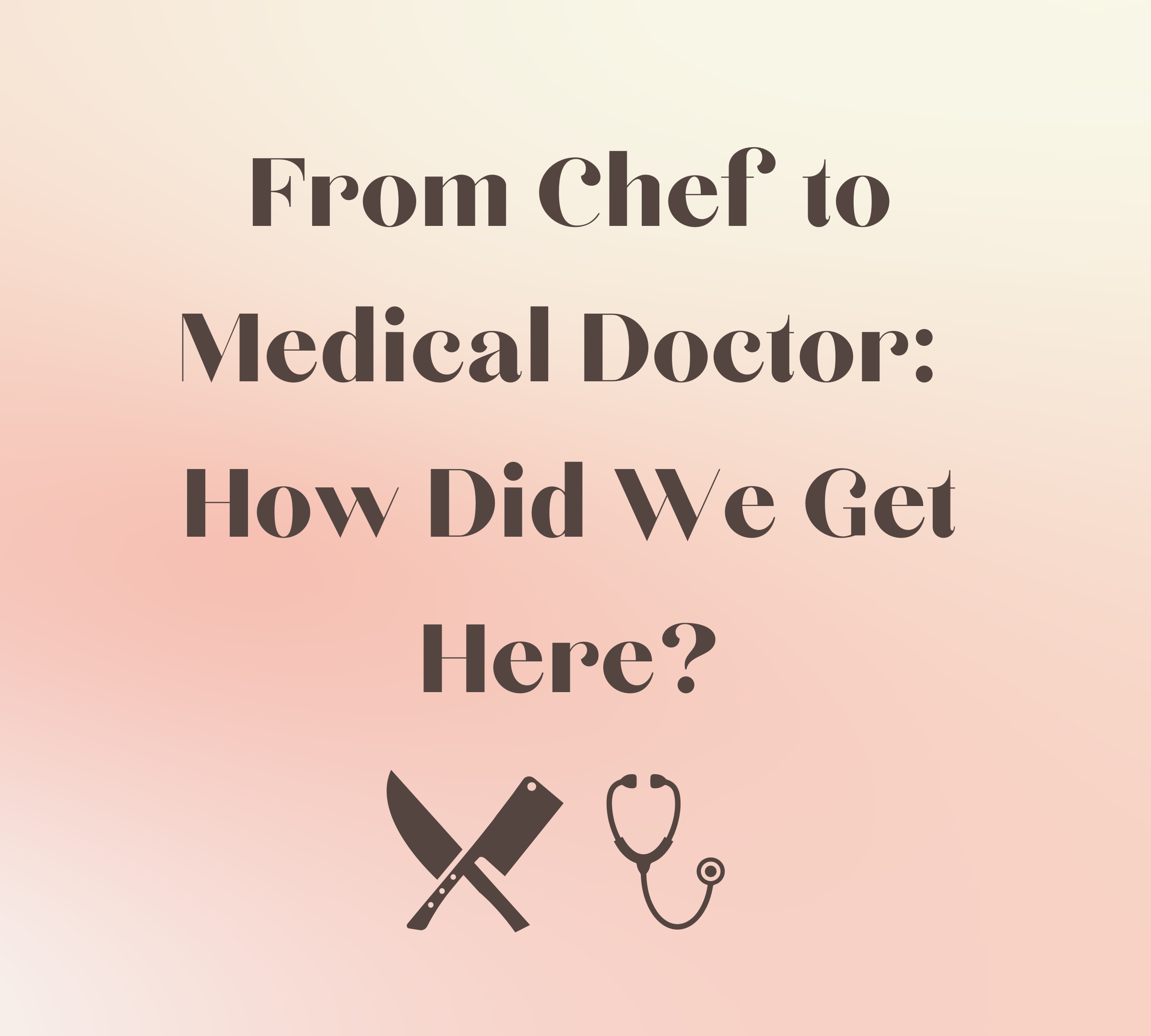In Jamaica, we can begin our Medical Degree straight out of high school. However, it’s just as competitive as anywhere else—you must have top grades to get accepted. The competition spans the Caribbean, even though other islands also have medical schools. Mona Campus (Jamaica) is renowned for Medicine, while St. Augustine (Trinidad) is known for Engineering, and Cave Hill (Barbados) for Law.
My decision to pursue medicine didn’t fully take shape until Grade 13 (Upper Six). A career in the sciences never even crossed my mind until sixth form. Before completing my CSEC (Caribbean Secondary Examination Certificate) exams, I had always wanted to be a chef—that was my dream. But after the grueling Food & Nutrition exam, where I realized what professional kitchen prep and cleanup entailed, I had a change of heart. I decided that cooking for friends and family at home, in my own time, was enough for me. At that point, I was lost and unsure what career path to take, especially since my subject choices didn’t align with anything else outside of the arts.
I began researching different careers: Architecture, Interior Design, International Relations, Pharmacy, Medicine—you name it. I explored them all, creating PowerPoints, spreadsheets, and pro-con lists for every option. Eventually, I discovered my passion for the sciences. It excited me, but I initially crossed Medicine off the list because I feared the stress. In high school, stress often led to illness, even landing me in the hospital at times. Medicine is notorious for its intensity, so I looked into other science-related careers, with Clinical Pharmacy topping my list.
The next step was to ensure I had the right subjects. In the Caribbean, we choose our subjects at the end of Grade 9 (3rd form) based on our career interests. Looking back, it seems crazy—what do 14-year-olds really know about choosing a career? At the time, I was set on becoming a chef, so I chose Food & Nutrition, Chemistry (for food chemistry, of course), Visual Arts, Principles of Business (to run my own restaurant), Spanish, and Geography, alongside the mandatory subjects of English, Mathematics, and Literature. It was a random mix, but it made sense for my dream of becoming a chef. However, after finishing Grade 11, that dream was gone, and I had no direction.
Then came Sixth Form (Grades 12 & 13). Unlike other places, sixth form isn’t mandatory here, and many students move straight from Grade 11 to college or the workforce. I wasn’t ready for that. I wanted more time to study and figure out what I wanted to do. By then, I knew I was interested in the sciences, but I had to start from scratch since my previous subjects didn’t qualify me for many options. I settled on Chemistry, Environmental Science, and Sociology but knew I needed more if I wanted a career in the sciences.
So, I signed up for night classes to take CSEC Biology, and my journey toward science began. My parents were incredibly supportive throughout, allowing me to make my own decisions. During this time, I found some of my closest friends, who helped me with my studies. I’ll always be grateful for their support.
By the end of Grade 12, I had narrowed my options down to Clinical Pharmacy and Medicine. I knew I wanted to work with patients and be part of their treatment journey. To meet the requirements for both careers, I decided to take CSEC Physics, drop Sociology, and take both CAPE Biology Unit 1 and 2 in Grade 13—a daunting task since each unit has its own syllabus. Many people told me it was impossible, but I didn’t want to take a gap year. I was determined to make it work.
At the start of Grade 13, I made a plan. After speaking with my teachers and principal, they gave me the green light to add the extra subjects to my schedule. Balancing everything was challenging, with some classes overlapping and others requiring me to catch up. I also had night classes, clubs, and sports to juggle. It was tough, but it prepared me for the rigors of medical school and life. My organizational, time-management, and prioritization skills were tested like never before.
When the results came out, I had achieved top marks in all my subjects. I was incredibly proud of myself for doing what many said I couldn’t. I managed my stress well, and that, to me, was a sign that Medicine was the right path.
Then came the waiting for acceptance letters. I spent the entire summer waiting for that email to show up in my inbox. My heart raced as I opened the message titled “RE: Application to the Bachelor of Medicine, Bachelor of Surgery.” I closed my eyes said a quick prayer and when I finally opened it ready to see that all my hard work had paid off I read the words: “We are unable to offer you acceptance…”
